- Home
- All Courses
- Software Testing & Selenium
- Selenium Automation Testing
- Live Projects on Testing
- Live Projects on Selenium
- DevOps with AWS & Azure
- Amazon Web Services
- React JS
- MERN Stack
- Java Full Stack By JavaEdge
- UI / WEB Development By JavaEdge
- Python Full Stack By PyEdge
- Django with Live Project By PyEdge
- New Batches
- Placements
- Student Reviews
- Students Zone
- Contact Us
- Enroll Now
Java Full Stack Developer Course
The Java Full Stack Developer Course is a Job Guarantee Program is an intense bootcamp, offers a complete suite of full stack development skills. Complete the course to master these skills and get a guaranteed job with a median pay of 9 LPA.
Course Duration
120 Days
Training Options
Onsite / Online
Rating
Why Should You Take Java Full Stack Developer Course Program?
Java Development is in demand.
Java programming is rated as one of the happiest professions.
Java Development has a great career path.
Instructor-led Java Full Stack Live Classes

Java Course Developer Course Schedules
| Course | Date | Timings | Duration | Trainer | Training Options |
|---|---|---|---|---|---|
| Java Full Stack Development | 01-May-2024 | 05:30 PM - 07:00 PM | 150 Days | Mr.Seravana &Mr. Pratap | Onsite / Online |
About Course
This Java Full Stack Developer course is designed to give you an essence of front-end, middleware, and back-end web developer technologies. You will learn to build an end-to-end application
About Trainer
- 8+ years of Real-time Experience in Java & Web Technologies
- Certified Java Consultant
- Experience in blend of Real-time Projects & Training’s
Training Options
ONSITE TRAINING
INR 20,000/-
- Smartboard & Live Video Streaming Environment
- Effective Training by Industry Experts
- Limited Students per batch
- Assignments assessment and assurance
- Study Materials, Videos and Tests through LMS App
- Earn a Global Certificate
- Resume & Placement Support
ONLINE TRAINING
INR 20,000/-
- Smartboard & Live Video Streaming Environment
- Effective Training by Industry Experts
- Limited Students per batch
- Assignments assessment and assurance
- Study Materials, Videos and Tests through LMS App
- Earn a Global Certificate
- Resume & Placement Support
Video Based Learning
INR 20,000/-
- High Quality Training Videos by Industry Experts
- Learn at your convenient time
- Videos Access
- Free Upgrade & Support
- Study Material and Tests access through LMS
- Earn a Global Certificate
- Resume & Placement Support
Skills Covered
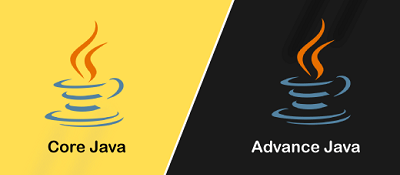
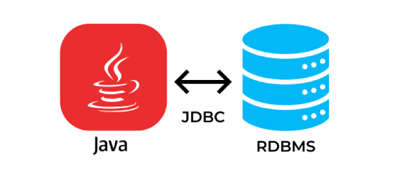
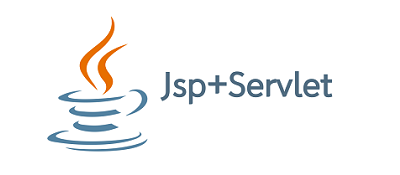

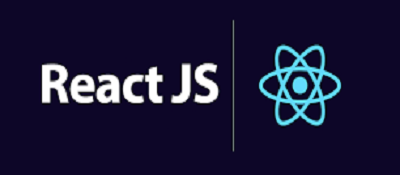

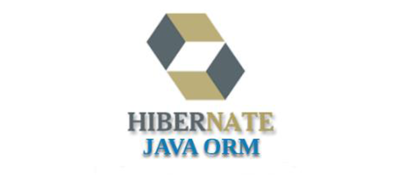

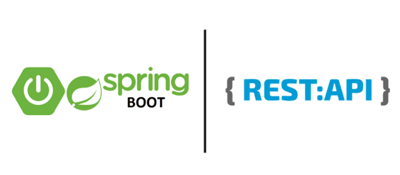
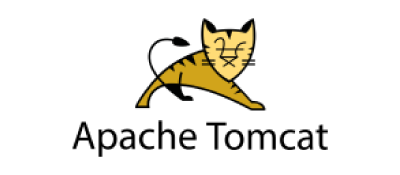


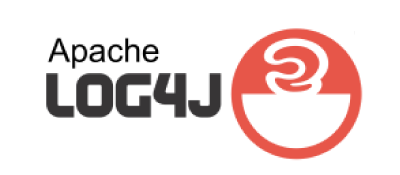


Curriculum
Introduction Core Java
- Introduction to programming
- Introduction to java
- JDK installation
- Keywords, Identifiers, variables
- Operators
- Method/Functions
- Flow Control Statements
- Arrays
- Strings
- Interactive programs in java using Scanner
Object Oriented Programming System (OOPS)
- Classes and Objects
- Object creation
- Reference variable
- Global and local variables
- Constructors
- Inheritance***
- Method Overloading
- Method Overriding
- Abstract classes
- Interfaces
- Typecasting
- JVM architecture
- Polymorphism
- Abstraction
- Java packages
- Access Specifies
Java Built-in packages and API
- Overview of java API
- Object class
- String, String Buffer and String Builder
- Exception Handling
- Threads and multithreading
- Wrapper Classes
- Java Collection Frameworks
- File Handling
- Serialization
Introduction to JAVA EE
- What is computer?
- What is an application?
- Types of application?
- What is standalone application?
- What is web application?
- What is network?
- What is internet?
- What is intranet?
- What is server?
- What is database?
- What is an API?
- What is J2EE?
- Types of API’s
- JAVA EE 3-tier architecture
- JAVA EE 2-tier architecture.
JDBC
- Steps to work with JDBC
- JDBC pre-requirements
- Installing MYSQL, DB server
- FIRST JDBC program
- What is a JAR file?
- About driver class
- How to load the driver class into the program
- .Types of Driver
- Db url
- What is url?
- Structure of dburl
- Driver Manager class
- About the get connection method
- Connection object
- Statement and prepared statement objects
- ExecuteQuery() and executeUpdate() methods
- How to handle the result set object
- How to process the result set object
- Why to close an object?
Introduction
- What is web browser?
- What are web resources?
- Types of web resources
- What is web server?
- Installing of apache tomcat web server
About servlet
- Servlet introduction
- Creating the first servlet in web app
- Steps to create WAR file
- Build & Deployment process
- Web URL
- Web url structure.
- Query string.
- Difference between GET and POST.
Servlet Container
- About servlet containers & its advantages
- Request and response objects
- GetParameter() and getParameters() methods
- About XML
- About deployment descriptor(web.xml)
- Generic servlet
- HTTP Servlet
- Difference between Generic servlet and HTTP Servlet
- Servlet life cycle
- Redirect, Forward and Include
- Cookies
- Session
- Steps to create a session in the webapp
- Types of session
- Life cycle of session
- Application of session
Introduction
- How to create JSP
- Difference between Servlet and JSP
JSP Scripting Elements
- Scriptlet tag
- Expression tag
- Declaration tag
JSP implicit objects
- Request object
- Response object
- Config object
- Application object
- Session object
Exception handling in JSP
- About isErrorPage and errorPage
Jstl
- Introduction
- JSTL core tags
- JSTL function tags
Introduction to Web-Technology
- What is web?
- What is network?
- What is internet?
- What is web-development?
- What is browser?
- What is web-server?
- What is http?
- What is the use of http?
- What is html?
- What is website?
- What is web-page?
- Structure of Web
- Definition of all the points
- Install of Editors
- How to write program using editors
HTML-5
- Introduction
- Structure of html
- What is tag?
- Types of tags
- Attributes
- All tag attributes
- How to apply all the attributes in web-pages
Table
- How to create table in Html
- Attributes of table
List
- How to create list
- Attributes of list
Form
- What is form
- How to create forms using html
- How to create log-in page
- How to create registration page using form .
- Attributes of form
Introduction
- What is css?
- What is the use of css?
- Types of css
- How to call css inside html pages
Selectors
- What is selector?
- Types of selector
- How to apply selector
Combinators
- What is combinators?
- Types of combinators
- How it is related to selectors
Pseudo-class & Pseudo-elements
- What is pseudo-class?
- What are pseudo-elements
- Types of pseudo-class
- Types of pseudo-elements
Introduction
- What is JavaScript?
- What is the difference between java &JavaScript
- Application of JavaScript
- Advantages & Disadvantages of JavaScript
- Types of JavaScript
- Datatypes in JavaScript
- Looping Statement
- Conditional Statement
Function & Arrays
- What is function?
- What is array?
- Types of function
- Methods of array
String & Object
- What is string?
- Methods of string
- What is object?
- How to create object in js
Date & Math
- What is date method?
- What is math method?
Methods of date & math
Introduction
- What Is Database?
- What is Database Management System (DBMS)?
- What is Relational Model?
- Introduction to RDBMS
- Brief on E.F CODD
Datatypes and Constraints
- What are Datatypes?
- Types and Examples
- How to use
- What are Constraints?
- Types and Examples
- How to use
Statements in SQL
- Data Definition Language (DDL)
- Data Manipulation Language (DML)
- Data Control Language (DCL)
Software Installation
- Installing and set up of software
- Working on MySQL
Data Query Language (DQL)
- Select
- From
- Where
- Group By
- Having
Order By
Hibernate
- Hibernate Overview
- Hibernate-ORM
- Hibernate Architecture
- Hibernate Environment Setup
- Hibernate Configuration
- Hibernate Session
- Hibernate Mapping Files
- Hibernate Mapping Types
- Hibernate Annotation
- Hibernate Query Language
Introduction
- Why spring
- Spring modulus
- Spring application
- Spring in eclipse
Spring IOC
- IOC container
- dependency injection
- constructor injection
- constructor injection dependent object
- constructor injection with collection
- constructor injection with collection 2
- constructor injection with map
- constructor injection in inheritance been
- setter injection
- setter injection dependent object
- setter injection with collection
- setter injection with collection 2
- setter injection with map
- injection with map 2
- constructor injection versus setter injection
- auto wiring
- factory method
Spring MVC
- MVC introduction
- multiple view pages
- multiple controllers
- model interface
- request Param annotation
- form tag library
- form text field
- form radio field
- form checkbox
- form drop-down list
- JDBC Template Example
- PreparedStatement
- MVC CRUD Example
- spring MVC Validation
Spring Boot & Rest API
- Spring Boot Introduction
- Spring Boot + Maven – Hello World Example
- Creating a RESTful Web Service Example
- Common Application Properties
- How to Change Default Tomcat Server Port
- How to Change Default Context Path
- How to Reload Changes Without Restarting the Server
- How to Create/Configure a Data Source
- How to Configure Multiple Data Source
- Spring Boot + Spring Security – RESTful Web Service with basic Authentication
- Spring Boot + Spring Security – RESTful Web Service with Database Authentication
- Spring Boot + Spring MVC + JSP Hello World Example
Spring Boot – RESTful Web Service with POST Request in JSON Example
- Webservices Introduction
- What is Webservices
- Why Webservices
- Real Time Examples of Webservices
- Different Webservices
- SOAP
- REST
- About HTTPS
- Understanding SOAP & REST Webservices
- Requirement of Webservices
- Advantage of Webservices
- Understanding XML & JSON
- SOAP Webservice using Spring
- REST Webservice using Spring-REST
- Maven
- JUnit
- Log4J
- GitHub
- Jenkins
Like the curriculum? Enroll Now
Structure your learning and get a certificate to prove it.

Java Full Stack Developer Course
QEdge Tech Java Professional Certificate Holders work at 100s of companies like




Reviews



QEdge Training Features

Theory

Project Work

Assignments

Certification

Resume Preparation

Interview Preparation

Resume Marketing

Placement Support
Frequently Asked Questions
The salary range for full-stack Java developers in India can vary, typically falling between ₹2.0 Lakhs and ₹13.0 Lakhs per year. On average, these professionals earn approximately ₹6.7 Lakhs annually.
Upon successful completion of the Full Stack Java Developer program, individuals will be equipped with a comprehensive skillset that prepares them for a wide range of job positions within the software development and web development domains. The program provides a strong foundation to excel in various roles, opening doors to diverse career opportunities. Here are some of the exciting job positions that individuals can pursue:
1. Full Stack Developer: As a full stack developer, individuals will have the skills to work on both the front-end and back-end development of web applications, ensuring the seamless functionality of the entire system.
2. Java Developer: With a deep understanding of Java programming languages and frameworks, individuals can excel in dedicated Java development roles. They will be responsible for creating applications, debugging, and maintaining the Java codebase.
3. Back-End Developer: Back-end developers focus on the server-side logic of web applications. They work with databases, APIs, and frameworks to ensure smooth data flow and efficient functionality.
4. Web Application Developer: Individuals can become specialized web application developers, focusing on creating and maintaining web-based applications using Java and other relevant technologies.
5. Software Engineer: The program equips individuals with the skills and knowledge necessary to work as software engineers. They can contribute to the entire software development life cycle, from requirements gathering to system deployment and maintenance.
6. DevOps Engineer: With a strong understanding of the Full Stack Java Developer program, individuals can pursue DevOps roles, where they can contribute to the development, deployment, and operation of software systems, ensuring efficient collaboration between development and operations teams.
7. Technical Consultant: Individuals can utilize their comprehensive understanding of software development and web development to work as technical consultants. They can provide expert advice and guidance to clients, helping them navigate complex software projects.
8. Start-up Founder: Armed with the skills acquired through the Full Stack Java Developer program, individuals have the potential to become start-up founders. They can leverage their expertise to build innovative software solutions and launch their own ventures.
9. Freelance Developer: The program equips individuals with the flexibility and expertise to work as freelance developers. They can take on various projects, working remotely or independently, and deliver high-quality software solutions to clients.
These are just a few examples of the exciting and varied job positions that individuals can pursue after completing the Full Stack Java Developer program.
In the Java Full Stack Developer course offered by Simplilearn, you will learn a comprehensive range of skills and knowledge required for web development with Java. Throughout the course, you will gain expertise in various front-end, middleware, and back-end technologies, enabling you to effectively build full-stack web applications. Here is a breakdown of what you will learn:
Front-End Development:
– HTML, CSS, and JavaScript: You will acquire proficiency in the fundamental languages necessary for constructing the user interface of web applications. HTML will give you the ability to structure web pages, CSS will enable you to create stylish designs, and JavaScript will add interactivity and responsiveness to enhance the user experience.
– ReactJS: You will learn to utilize ReactJS, a widely-used JavaScript library, for creating dynamic and interactive user interfaces.
Middleware Development:
– Core Java: Building a strong foundation in Core Java is crucial for mastering both front-end and back-end development. You will learn the basics of Core Java in this course.
Back-End Development:
– Spring and Spring Boot: You will gain a thorough understanding of Spring and Spring Boot frameworks, which are widely recognized and used in the Java community. This knowledge will empower you to build scalable back-end applications effectively.
– Databases: You will be introduced to databases, including relational databases using SQL and NoSQL databases utilizing MongoDB. This module will cover database management and interaction techniques.
– JSP and JDBC: The course will teach you JavaServer Pages (JSP) technology for creating dynamic web pages on the server side and Java Database Connectivity (JDBC) for establishing connections between Java applications and databases.
– API Development: Participants will acquire valuable knowledge in developing APIs, which are essential for facilitating seamless interaction between different components of web applications and external systems.
Additional Skills:
– AWS: You will learn about Amazon Web Services (AWS), a widely used cloud computing platform, and its applications in Java Full Stack development.
– Docker: The course covers Docker, an open-source containerization platform, and its role in packaging and distributing applications.
– Jenkins: You will gain an understanding of Jenkins, a popular automation server used for continuous integration and continuous delivery (CI/CD) of software applications.
– Cucumber: You will learn Cucumber, a tool used for behavior-driven development (BDD), facilitating collaboration between developers and non-technical stakeholders.
– Project Works: The course also provides hands-on project work, allowing you to apply your newly acquired skills and knowledge to real-world scenarios.
By the end of the Java Full Stack Developer course, you will have the expertise and confidence to build robust and scalable full-stack web applications using Java and associated technologies.
A Java Full Stack Developer is a highly skilled professional who possesses expertise in both the front-end and back-end aspects of web development using the Java programming language. They are responsible for creating fully functional web applications, from designing engaging user interfaces to efficiently managing server operations and databases.
Java, being a widely-used programming language known for its portability, scalability, and robustness, is the foundation of a Java Full Stack Developer’s work. They utilize Java frameworks such as Spring, Spring Boot, and Hibernate to construct the back-end systems of web applications.
In front-end development, a Java Full Stack Developer takes charge of designing and developing the user interface of web applications. Their main responsibilities include crafting visually appealing and user-friendly web pages and forms, ensuring an intuitive and seamless user experience.
On the back-end, Java Full Stack Developers focus on the server side of the application. This involves designing the logic of the application, managing data, and overseeing server operations. They have expertise in handling various databases, ranging from traditional ones like MySQL and PostgreSQL to NoSQL options like MongoDB. These professionals ensure the efficient storage and retrieval of data for the web application.
One of the crucial roles of a Java Full Stack Developer is building APIs (Application Programming Interfaces) that enable smooth communication between different parts of the web application and external systems. This seamless integration and functionality ensure that the web application performs optimally and provides a satisfying user experience.
Overall, a Java Full Stack Developer’s expertise lies in their ability to seamlessly combine front-end and back-end development skills using Java, frameworks, databases, and APIs. They are essential members of the web development team, responsible for creating robust, scalable, and user-friendly web applications.
Yes , Website Project using Java Full stack
Upon completing our comprehensive Java full stack developer course, you can expect to receive a salary commensurate with industry standards. The average salary for Java full stack developers in India, is INR 541,642 per annum. However, please note that salaries in this field can vary based on several factors such as your location, level of experience, and specific job roles. With the newly acquired skills from our course, you can significantly enhance your income potential. Many of our alumni have successfully secured competitive salaries, and your proficiency in Java full stack development will undoubtedly unlock rewarding job opportunities in the industry.
After completion of training, you will receive a certificate of completion, which you can share with your friends, relatives, co-workers and potential employers.
Yes, you’ll be able to access your enrolled course materials through our Learning Management System. Practical Assignments, Day-to-Day Class videos and readings you can access through our LMS App.
Be Future Ready. Enroll Now
Structure your learning and get a certificate to prove it.

QEdge Technologies
QEdge Technologies was established by team of enthusiastic industry professionals from various organizations with the vision of providing IT training to fill the gap between industry requirement and learning.
Follow us!
Contact Us
Full Stack Developer Trainings
- Java Full Stack Training
- Python Fullstack Training
- Django with Live Project
- UI / WEB Development
- React JS
- MERN Stack
Software QA Testing Trainings
- Software Testing Training Online
- QA Testing Training
- Selenium Training
- Manual Testing Training
- Selenium Project Testing Training
- Manual Project Testing Training
- Appium Mobile Application Testing Training
- JMeter Performance Testing Training
- LoadRunner Performance Testing Training
- Database & ETL Testing Training
- Copyright © 2021 QEdge Technologies
- Terms & Conditions
- Legal & Privacy





